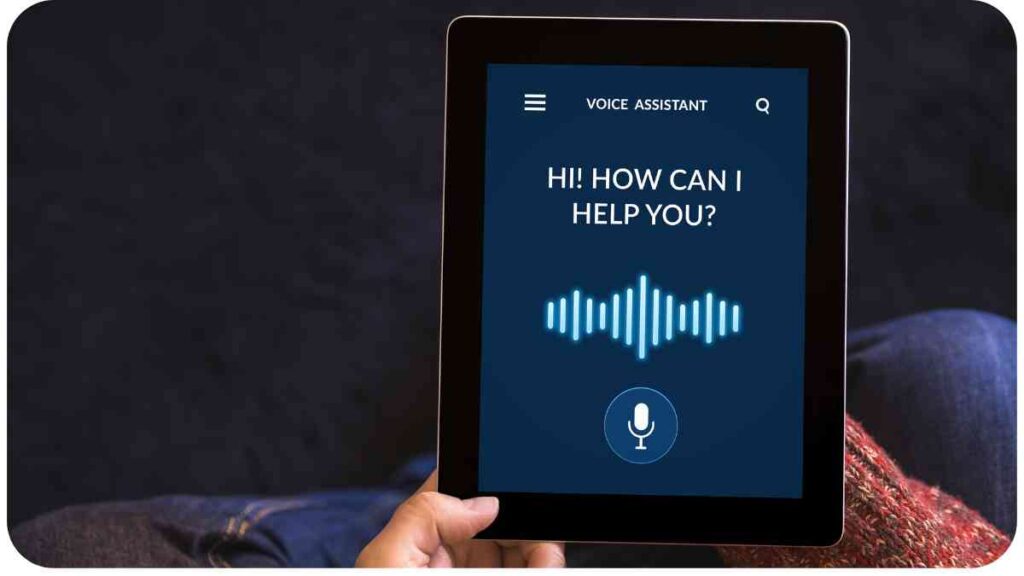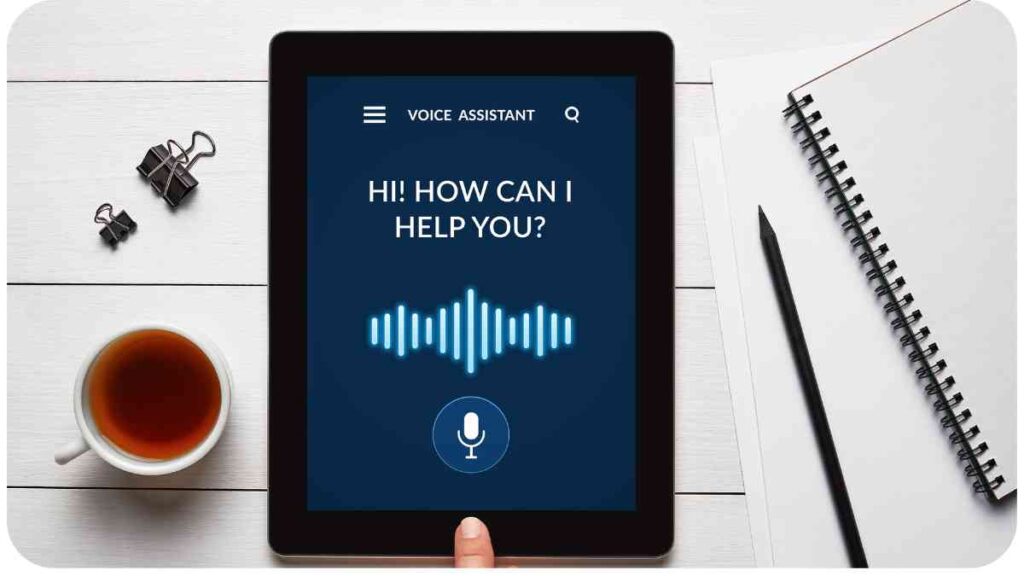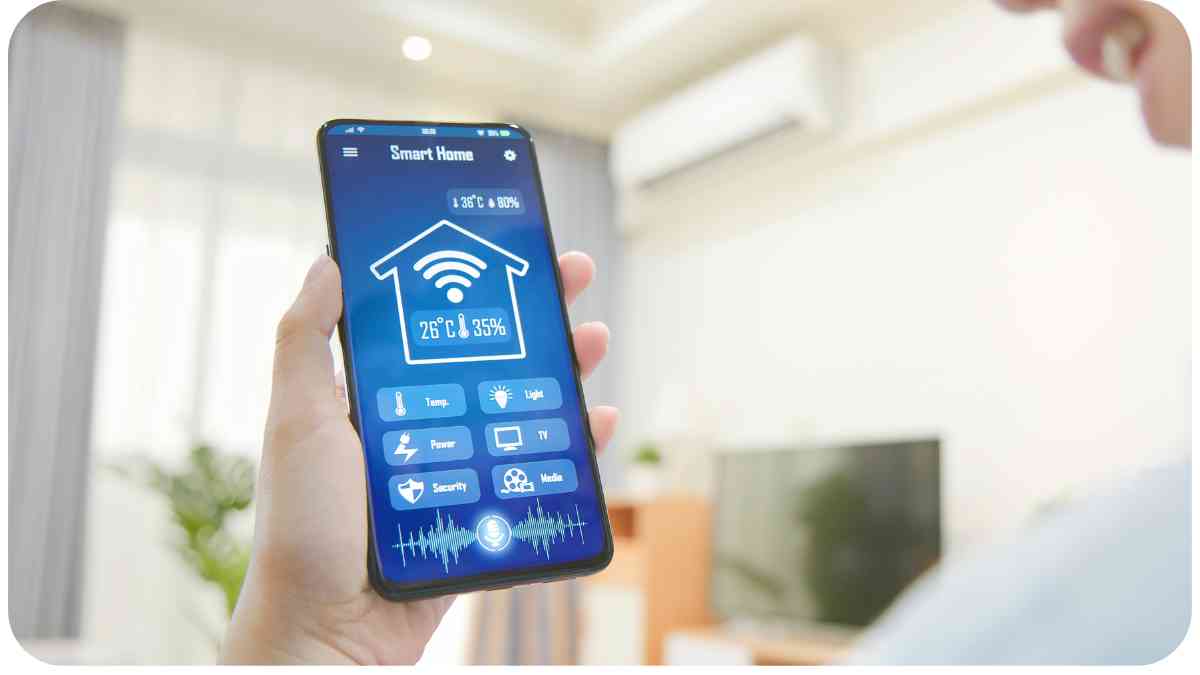In today’s world, voice assistants have become ubiquitous, simplifying our lives through their ability to answer questions, perform tasks, and control smart devices. However, alongside the convenience they provide, concerns about privacy have arisen. This article aims to explore the phenomenon of silent eavesdropping in relation to voice assistants.
We will examine the mechanisms behind silent eavesdropping, discuss its implications, and provide tips to protect your privacy. Moreover, we will delve into legal and ethical considerations and explore industry efforts to address these concerns.
| Takeaways |
|---|
| Silent eavesdropping is a concern with voice assistants like Alexa. |
| Adjusting privacy settings and monitoring device activity can help mitigate privacy risks. |
| Changing the wake word can reduce unintended activations. |
| Review and delete voice recordings periodically to maintain privacy. |
| Exploring alternative voice assistant options can provide more privacy-focused alternatives. |
2. How Does Alexa Work?
Before we dive into the topic of silent eavesdropping, it’s crucial to understand how voice assistants like Alexa operate. Alexa, developed by Amazon, relies on a combination of artificial intelligence, natural language processing, and machine learning algorithms to process and respond to user queries. By analyzing your voice commands, Alexa activates and provides the desired information or executes the requested tasks.
Enhance your home security with the latest technology. Explore the Top 15 Home Security Systems for comprehensive protection and peace of mind.
3. Privacy Concerns Surrounding Voice Assistants

As voice assistants gain popularity, privacy concerns arise. Users worry about companies recording and analyzing their conversations for various purposes, including targeted advertising. Additionally, frequent news reports of accidental voice recordings and unauthorized access contribute to these concerns. Silent eavesdropping, in particular, raises questions about the extent to which voice assistants listen and record without user consent.
4. Understanding the Role of Silent Eavesdropping
Silent eavesdropping refers to the phenomenon where a voice assistant inadvertently activates and records audio without explicit user activation. Instead of “waking up” solely in response to its wake word, a voice assistant may misinterpret other sounds as the wake word and start recording. This unintended activation has privacy implications, as sensitive or personal information could be captured without the user’s knowledge.
| Tables | Relevant Data |
| Privacy Concerns Surrounding Voice Assistants | – Widespread concern about companies recording and analyzing conversations <br>- Incidents of accidental voice recordings and unauthorized access |
| Understanding the Role of Silent Eavesdropping | – Voice assistants inadvertently activating and recording audio without explicit user activation <br>- Misinterpretation of sounds as the wake word leading to unintended activation |
5. Technical Mechanics of Silent Eavesdropping
Silent eavesdropping occurs due to the complex nature of wake word detection within voice assistants. An array of microphones is continuously listening for the wake word, and when detected, the voice assistant activates and starts processing the subsequent commands. However, challenges such as background noise, similar phonetic patterns, or voices of different users can trigger false activations, resulting in silent eavesdropping.
Stay ahead in safety with cutting-edge solutions. Discover Advanced Home Security Technologies that provide an extra layer of defense for your home.
| Tables | Technical Mechanics of Silent Eavesdropping |
| Wake Word Detection | – Array of microphones continuously listen for the wake word <br>- Challenged by background noise and similar phonetic patterns |
| False Activations | – Voice assistants mistakenly activated by sounds other than the intended wake word <br>- Silent eavesdropping occurs when false activations lead to unintended recordings |
6. Protecting Your Privacy: Tips and Best Practices
To safeguard your privacy while using voice assistants like Alexa, here are some actionable tips and best practices:
- Review your device’s privacy settings: Regularly check and adjust the privacy settings on your voice assistant device. Understand what data is being collected and how it is being used.
- Change the wake word: Most voice assistants allow users to change the wake word. By personalizing it, you can minimize unintended activations caused by similar sounds.
- Monitor your device’s activity: Stay informed about the recordings made by your voice assistant. Periodically review and delete stored audio files to ensure privacy.
- Be cautious with voice commands: Avoid uttering sensitive or personally identifiable information when using voice assistants. Treat them as you would any other digital platform.
| Tips and Best Practices | Description |
| Review your device’s privacy settings | Regularly check and adjust the privacy settings on your voice assistant device. Understand what data is being collected and how it is being used. |
| Change the wake word | Most voice assistants allow users to change the wake word. By personalizing it, you can minimize unintended activations caused by similar sounds. |
| Monitor your device’s activity | Stay informed about the recordings made by your voice assistant. Periodically review and delete stored audio files to ensure privacy. |
| Be cautious with voice commands | Avoid uttering sensitive or personally identifiable information when using voice assistants. Treat them as you would any other digital platform. |
7. Legal and Ethical Implications of Eavesdropping
Silent eavesdropping raises significant legal and ethical concerns. From a legal standpoint, unintentional recording and storage of conversations without consent may violate privacy laws.
Ethically, voice assistants must prioritize user consent and transparency regarding data collection and usage. Striking a balance between innovation and protecting user privacy becomes crucial for technology companies.
Prioritize safety with smart home innovations. Learn about the Top Smart Home Devices designed to keep your home secure and your loved ones safe.
8. Industry Efforts to Address Privacy Concerns
Recognizing the importance of privacy, technology companies, including Amazon, have taken measures to address concerns. These efforts involve improving wake word detection algorithms, enhancing user controls, and providing clearer explanations on data usage. Companies also conduct regular audits and seek external expertise to ensure their voice assistant systems conform to established privacy standards.
| Tables | Industry Efforts to Address Privacy Concerns |
| Wake Word Detection | – Companies working on refining wake word algorithms <br>- Improving accuracy to minimize false activations |
| Enhancing User Controls | – Providing more granular privacy settings <br>- Simplifying the process of reviewing and deleting recordings |
| Transparency on Data Usage | – Clearer explanations on how user data is collected and utilized <br>- Highlights importance of informed consent |
| Regular Audits and External Expertise | – Conducting audits to ensure compliance with privacy standards <br>- Consulting with external specialists and privacy experts |
9. Case Studies: High-Profile Eavesdropping Incidents
Numerous high-profile incidents have shed light on the potential risks associated with silent eavesdropping. Examples include instances where voice assistants mistakenly recorded and transmitted private conversations to unintended recipients. These incidents underscore the need for continuous improvement in voice assistant technology to prevent privacy breaches.
Safeguard your digital space with expert tips. Master the art of Securing Your Home Network Like a Pro to ensure a robust defense against potential threats.
10. Taking Control: Adjusting Alexa’s Privacy Settings
Amazon provides users with various privacy settings to control and manage their Alexa-enabled devices. These settings allow users to review and delete voice recordings, disable specific features, and control data sharing with third-party apps. By familiarizing yourself with these settings and configuring them according to your preferences, you can take control over your privacy.
| Tables | Taking Control: Adjusting Alexa’s Privacy Settings |
| Voice Recording Management | – Review and delete voice recordings <br>- Manage storage and retention settings |
| Disabling Specific Features | – Choose to disable specific functionalities, such as purchasing through Alexa <br>- Opt-out of targeted advertising |
| Third-Party Data Sharing Control | – Control the extent to which Alexa shares data with third-party apps <br>- Manage permissions and access rights |
11. Alternative Voice Assistant Options

If privacy concerns surrounding Alexa persist, alternative voice assistants can be considered. Numerous companies develop privacy-focused voice assistants that prioritize data protection and user control. Exploring these options allows users to choose voice assistant platforms that align with their privacy preferences.
Transform your sleep environment with smart solutions. Explore the Best Smart Home Devices for Improving Your Sleep and create a personalized, restful sanctuary for better sleep quality.
| Tables | Alternative Voice Assistant Options |
| Privacy-Focused Voice Assistants | – Examples: Mycroft, Snips, OpenAI Voice Assistant <br>- Focus on data protection and user privacy |
12. Implications for a Connected Future: Balancing Convenience and Privacy
As we move towards a more connected future, where voice assistants become increasingly integrated into our daily lives, striking the right balance between convenience and privacy becomes paramount.
Innovations must address privacy concerns by continually improving security measures, increasing user controls, and promoting transparency. Users, too, should prioritize understanding and managing the privacy settings on their voice assistant devices for a more secure and customized experience.
13. Future Scope and Recommendations
The future holds promising possibilities for voice assistants. As technology advances, it becomes crucial to implement robust privacy frameworks and build consumer trust. Recommending rigorous privacy assessments, exploring the potential of differential privacy, and fostering collaboration among industry stakeholders are vital steps towards a more privacy-conscious ecosystem.
14. Frequently Asked Questions
Q: Can Alexa listen to my conversations even when I don’t use the wake word?
A: Silent
| Frequently Asked Questions | Answer |
| Can Alexa listen to my conversations even when I don’t use the wake word? | Silent eavesdropping incidents suggest that Alexa may unintentionally activate and record audio without explicit user activation. It’s essential to review and adjust your privacy settings to mitigate this risk. Monitor your device’s activity and ensure you understand the data collection and usage practices of the voice assistant. |
| Is my data secure with voice assistants like Alexa? | Technology companies are continuously improving security measures to protect user data. By implementing encryption, stringent access controls, and regular audits, they aim to enhance data security. However, it’s recommended to stay informed about the latest privacy updates and take necessary precautions to protect your information. |
| How can I prevent accidental activations and recordings? | Changing the wake word associated with your voice assistant can reduce unintended activations caused by similar sounds. Additionally, be cautious when discussing sensitive or personally identifiable information in the presence of voice assistants. Understanding how voice commands trigger the device can help prevent accidental recordings. |
| Can I delete my voice recordings from Alexa? | Yes, Amazon provides users with the ability to review and delete voice recordings. By accessing your device settings or the Alexa app, you can manage and delete recorded interactions to maintain your privacy. It’s advisable to periodically review and delete stored audio files. |
15. Conclusion
Silent eavesdropping poses significant privacy concerns when it comes to voice assistants like Alexa. However, through proactive measures, such as adjusting privacy settings, diligently reviewing device activity, and staying informed about industry efforts to address privacy concerns, users can take control of their privacy.
Companies need to prioritize user consent, transparency, and security to build trust and mitigate risks associated with unintended activations and recordings. As technology evolves, finding strategies to strike the right balance between convenience and privacy becomes imperative for a connected future.
By actively participating in the conversation surrounding voice assistant privacy and adopting privacy-focused alternatives, we can shape a future that respects and protects user privacy.
Further Reading
Here are some additional resources for further reading on the topic of silent eavesdropping and privacy concerns with voice assistants:
- Good Home Automation: Can You Drop in on Alexa Without Them Knowing? – Silent Eavesdrop: This article provides insights into silent eavesdropping with Alexa, discussing the potential privacy implications and steps users can take to protect their privacy.
- Quiet Home Life: Can You Drop in on Alexa Without Them Knowing? – Eavesdrop: In this article, the concept of silent eavesdropping is explained, addressing the concerns surrounding voice assistants and offering tips for maintaining privacy.
- Robot Powered Home: Alexa Drop-In: This resource discusses the drop-in feature on Alexa and explores the potential privacy implications related to this functionality.
FAQs
Q: How does silent eavesdropping happen with voice assistants like Alexa?
A: Silent eavesdropping occurs when a voice assistant mistakenly activates and records audio without explicit user activation. It can happen due to misinterpretation of sounds as the wake word or false activations caused by background noise or similar phonetic patterns.
Q: Can my voice assistant device record and transmit my private conversations without my knowledge?
A: While unintentional recordings and accidental transmissions have been reported in the past, the likelihood of such incidents is considered low. However, it’s crucial to review and adjust your device’s privacy settings and monitor your device’s activity to mitigate any potential risks.
Q: How can I protect my privacy when using voice assistants?
A: To protect your privacy, regularly review your device’s privacy settings, change the wake word to minimize unintended activations, monitor your device’s activity, and avoid discussing sensitive or personally identifiable information in the presence of voice assistants.
Q: Can I delete my voice recordings from Alexa?
A: Yes, you can delete your voice recordings from Alexa. Amazon provides users with the ability to review and delete voice recordings through device settings or the Alexa app.
Q: Are there any alternative voice assistant options that prioritize privacy?
A: Yes, there are alternative voice assistants available that focus on privacy and data protection, such as Mycroft, Snips, and OpenAI Voice Assistant. These alternatives prioritize user control and data privacy.

Hi there! I’m Hellen James and I’m a writer and editor with a passion for home technology. I’ve been working in this field for over 10 years, so I know what it’s like to be a part of the growing field of smart home technology. I’ve written about everything from how to choose the right smart thermostat to what the best smart doorbell is for your needs.


